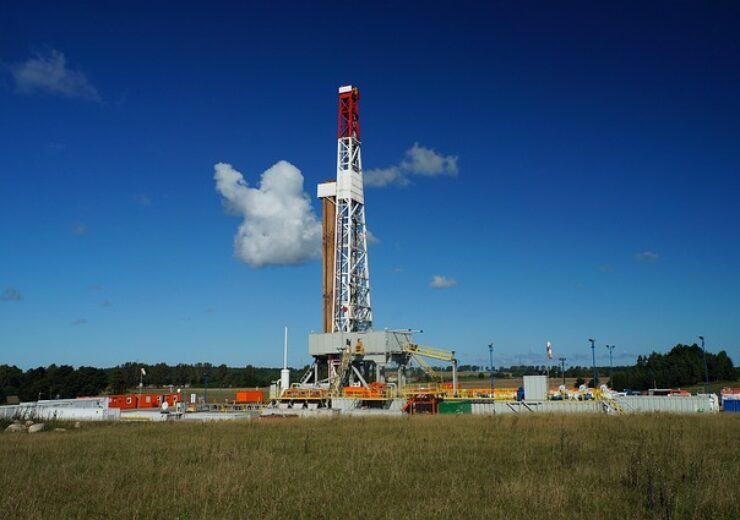In August 2022, Senex announced plans to expand its Atlas and Roma North natural gas developments in Queensland’s Surat Basin that would put more than $200 million into local businesses and regional areas while creating hundreds of new regional Queensland jobs and enabling more reliable energy supply

Federal Government gas intervention puts $1 billion Atlas expansion in Queensland at risk. (Credit: Anita starzycka from Pixabay)
New laws passed by the Albanese Government that could arbitrarily dictate investment returns for gas producers puts at risk Senex Energy’s $1 billion investment plan to bring new gas to the east coast market.
This will result in less gas, electricity shortages, fewer jobs and weaker regional communities that rely on the resources sector.
In August 2022, Senex announced plans to expand its Atlas and Roma North natural gas developments in Queensland’s Surat Basin that would put more than $200 million into local businesses and regional areas while creating hundreds of new regional Queensland jobs and enabling more reliable energy supply.
This development planned to increase Senex’s annual production to 60 petajoules (PJ) per year, representing more than 10 per cent of annual east coast gas demand, around 40 percent of annual Queensland gas demand and the equivalent of the power used by more than 2.7 million homes.
In September 2022, Senex commenced an Expression of Interest (EOI) process to support the domestic market for the supply of gas from Senex’s new Atlas investment starting in 2024 until 2039.
Senex subsequently received offers oversubscribing the available supply by more than five times in the early years of supply, and with solid interest extending out to 2039.
Whilst Senex continues to engage with these customers, these new laws have made it impossible to contract with confidence and puts this investment, and therefore new gas supply to homes and industry, at risk.
Senex Chief Executive Officer Ian Davies said the company will honour existing commitments to customers, however given the new laws it is not possible to finalise any new gas agreements.
“Until we know the scope of future Government actions under the yet-to-be-developed Code of Conduct, and the potential for retrospective application of measures, including the breaking of agreed contracts, it is prudent to review all investment.
“While Senex supports measures to provide relief to Australian households and businesses from rising energy prices, this legislation goes much further and now challenges the commercial rationale for investing in future gas supply projects because the company can now be required to accept an arbitrary return determined by others, and after the investment is made.
“Price controls drive up demand however do nothing to increase supply – a situation that can only lead to unintended consequences requiring more intervention, potentially including energy rationing and breaking LNG export contracts.
“This legislation has the potential to choke gas supply into the east coast market and put at risk the essential role that natural gas will play in the energy transition to enable reliable electricity supply for homes and businesses.
“The fact that our EOI process was heavily oversubscribed with satisfactory offers for over 200 petajoules of new gas supply on up to 15-year contracts shows that the market desperately needs additional supply which will be put at risk by these ill-advised draconian market-control measures,” Senex CEO Mr Davies said.
Senex has suspended major items of investment for its expansion, including recruitment for 70 roles and more than 300 contractor jobs during construction, pending the outcome of the consultation process ending on 7 February 2023.
Mr Jhoon Soo Jho, Chair of Senex and Executive Vice President of POSCO International Corporation which acquired 50.1 per cent of Senex earlier this year, said the cost and risk equation of its Australian business had now changed significantly.
“We invested in Senex because we saw value in the Australian market and understood the country to be one of the lowest risk places to invest in energy.
“Because these changes have been brought on so rapidly, we now believe our investments are under question until we see the outcome of consultations and the final form of the mandatory Code of Conduct and new laws,” Mr Jho said.
Mr Stuart Johnston, Chief Executive Officer of Hancock Energy, owner of the remaining 49.9 per cent of Senex Energy, noted that the legislation could cause catastrophic consequences for Australia’s energy supply.
“This new law has the potential to massively disrupt Australian energy supplies, and the Australian people could be dealing with the fallout from last week’s decisions for a very long time.
“Further, the knock-on effect to other businesses faced with inadequate electricity, plus the contagion to other industries’ investments is a real risk and sends a chilling message on Australia’s investment environment.
“Our friends and allies in Korea and Japan have also relied on Australian energy for decades and are very concerned that we in Australia are turning our backs on them and affecting their industries and their people,” Mr Johnston said.
Source: Company Press Release
